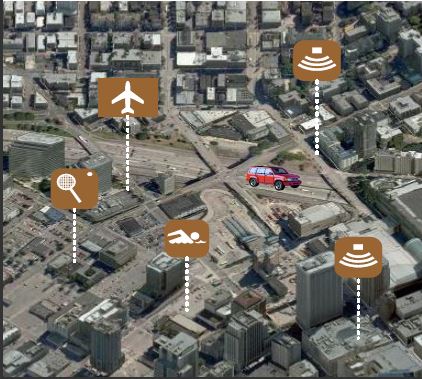Spatio-temporal graph learning is a key method for urban computing tasks, such as traffic flow, taxi demand and air quality forecasting. Due to the high cost of data collection, some developing cities have few available data, which makes it infeasible to train a well-performed model. To address this challenge, cross-city knowledge transfer has shown its promise, where the model learned from data-sufficient cities is leveraged to benefit the learning process of data-scarce cities. However, the spatio-temporal graphs among different cities show irregular structures and varied features, which limits the feasibility of existing Few-Shot Learning (\emph{FSL}) methods. Therefore, we propose a model-agnostic few-shot learning framework for spatio-temporal graph called ST-GFSL. Specifically, to enhance feature extraction by transfering cross-city knowledge, ST-GFSL proposes to generate non-shared parameters based on node-level meta knowledge. The nodes in target city transfer the knowledge via parameter matching, retrieving from similar spatio-temporal characteristics. Furthermore, we propose to reconstruct the graph structure during meta-learning. The graph reconstruction loss is defined to guide structure-aware learning, avoiding structure deviation among different datasets. We conduct comprehensive experiments on four traffic speed prediction benchmarks and the results demonstrate the effectiveness of ST-GFSL compared with state-of-the-art methods.
翻译:由于数据收集成本高,一些发展中城市现有数据很少,因此无法对完善模型进行培训。为了应对这一挑战,跨城市知识转让显示了其前景,从数据丰富的城市中学习的模型被利用,以有利于数据偏差城市的学习进程。然而,不同城市的时空图显示不规则的结构和不同特点,限制了现有微量学习(emph{FSL})方法的可行性。因此,我们提议了一个称为ST-GFSL的Spot-时空图模型 -- -- 无一例外的、少量的、少量学习(emph{FSL})模型学习框架。具体地说,为了通过转移跨城市知识来增强特征提取,ST-GFSL提议根据不高水平的元知识产生非共同的参数。目标城市的时空图显示的是,通过参数匹配、从类似的时空学习(refott-stopal-stopal-resmess)特性(\ reformal-lection)的可行性。此外,我们提议在四度模型重建过程中将数据偏差性分析结构进行重组。




